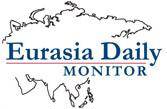The renewed efforts at summoning the prosperity that had been taken so completely for granted at the start of Dmitry Medvedev’s ersatz-presidency remain, however, frustratingly fruitless.
What makes the Russian case particularly complex is that it combines the problems of the petro-economy, heavy industries, and investment banks, so that the sharp drop in oil revenues comes together with the falling demand for aluminum and the new outflow of capital, which reached $130 billion in 2008.
This rent-harvesting regime cannot invent any consistent policy that would unleash the modernization potential hidden in every crisis. The inherent counter-reformism of the vast bureaucratic class that forms the real support base for Putin denies Russia a chance for a dynamic recovery and probably condemns it to protracted stagnation. Corrupt “expropriators” (in the old Marxist meaning of this term) cannot reinvent themselves as modernizers; and it may be highly significant that consumers, while pledging loyalty to their leaders, have, in fact, lost faith in the regime. Whatever arrogance Putin likes to demonstrate, there is a pronounced fear factor in his political behavior. The flashing TV pictures of angry demonstrations in Reykjavik and Athens, Riga and Vilnius accentuate this fear; and the huge wave of enthusiasm created by the inauguration of President Barack Obama does not help either. The progressing inability to control the discontent among Russian entrepreneurs and workers, students and officers might prompt Putin to respond forcefully. Vladivostok has seen the first of such inadequate reactions, and it is much further from Moscow geographically that politically.







